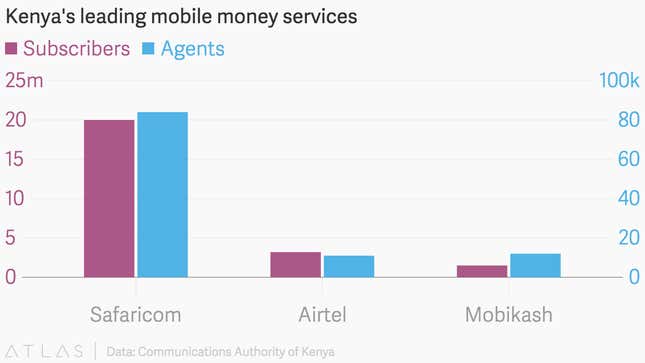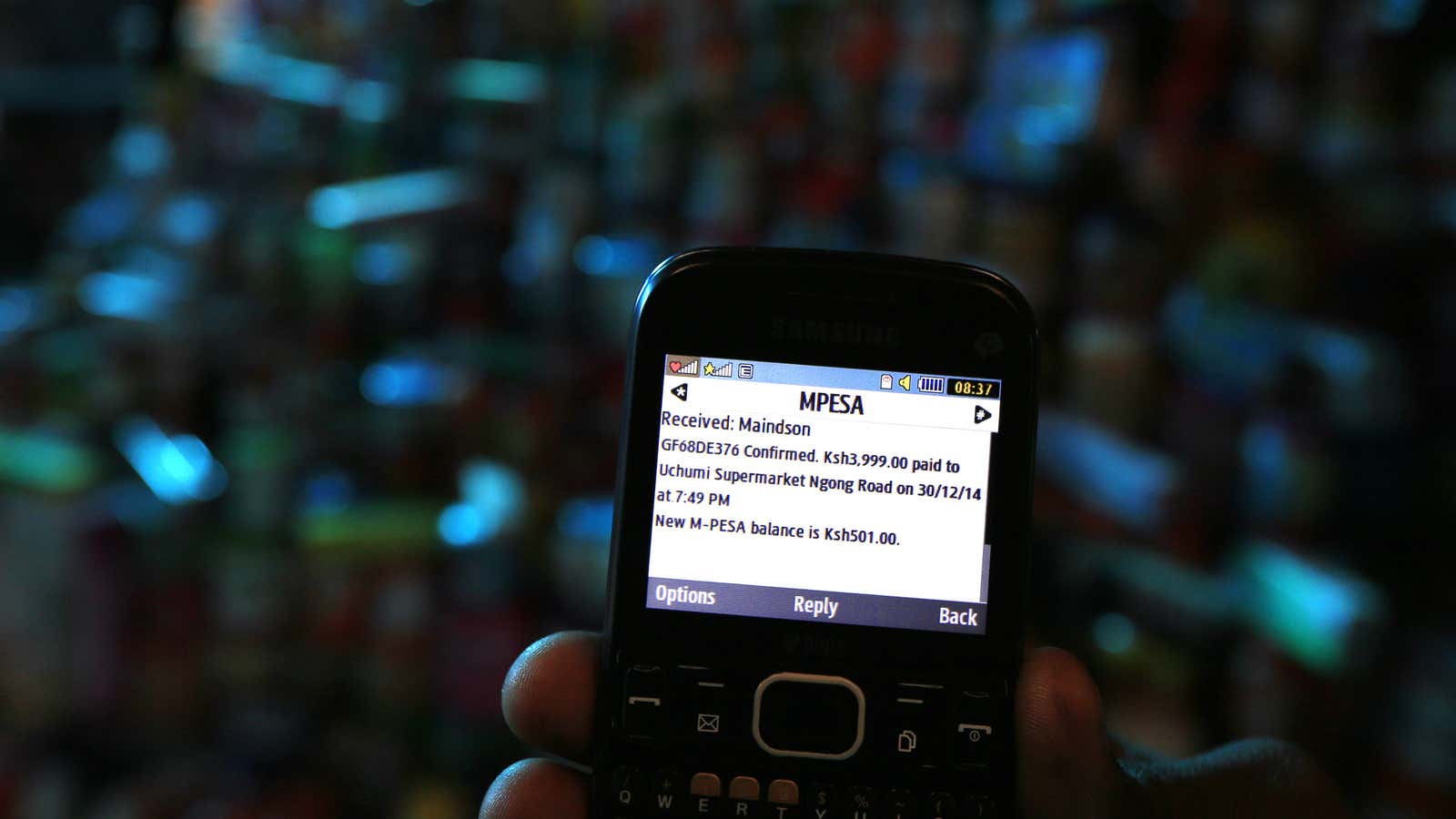The Kenyan government is introducing new regulations this week in parliament that could lead to the break-up of Safaricom, the country’s leading telecom company.
Fred Matiang’i, the cabinet secretary at the Ministry of Information, suggested that this is part of an effort to protect against monopolies. “Telecommunication firms need to be regulated to ensure some players are not strangled,” he said.
Safaricom, partly owned by the British mobile firm Vodafone, currently has more than 60% of Kenya’s 33 million mobile users.

If the new regulations pass parliament, Safaricom could be forced to separate its mobile money unit, M-Pesa, from its mobile phone services (voice and data) and infrastructure businesses, potentially weakening its position in the market. And it will mean victory for rival Airtel, which has long argued that Safaricom’s dominance is anti-competitive.
Last year, the Communication Authority of Kenya (CAK) ordered Safaricom to allow its mobile money agents to host services from other operators, who until then had refused to do so. Safaricom boasts 20 million subscribers on its M-Pesa platform. Analysts say this success has largely been built on the back of more than 83,000 agents the company has across the country.

Airtel wants the regulator to go even further. The company is demanding that inter-operability costs across networks be regulated, saying that mobile cash transfers from M-Pesa to Airtel Money are charged double the price of those transactions that take place between Safaricom customers. These practices, the company argues, are creating barriers in the market for other operators.
Safaricom is crushing its competition in Kenya, leading all segments of the market — voice (75.6 %), SMS (93%), mobile data (70%) and mobile money (66.7%), according to Business Daily.
But the mobile operator disputes the idea that this is due to nefarious business practices. “It is unfair to punish someone just because they have a high market share,” Bob Collymore, Safaricom’s chief executive, has said. “A high market share does not mean abuse of dominance, but rather it is a process of sound business management and independent customers’ choices.”
In May, Safaricom announced a $320-million annual profit, up 38% from the previous year. While voice still remains the company’s leading source of revenue, M-Pesa recorded 23% growth, with data seeing an increase of 59%.
Mobile money is a hugely lucrative business in Kenya. Last year saw $23 billions transfer through the service providers, according to the country’s central bank. Eighty-seven percent of the country’s $55-billion GDP passed through M-Pesa in 2014.
